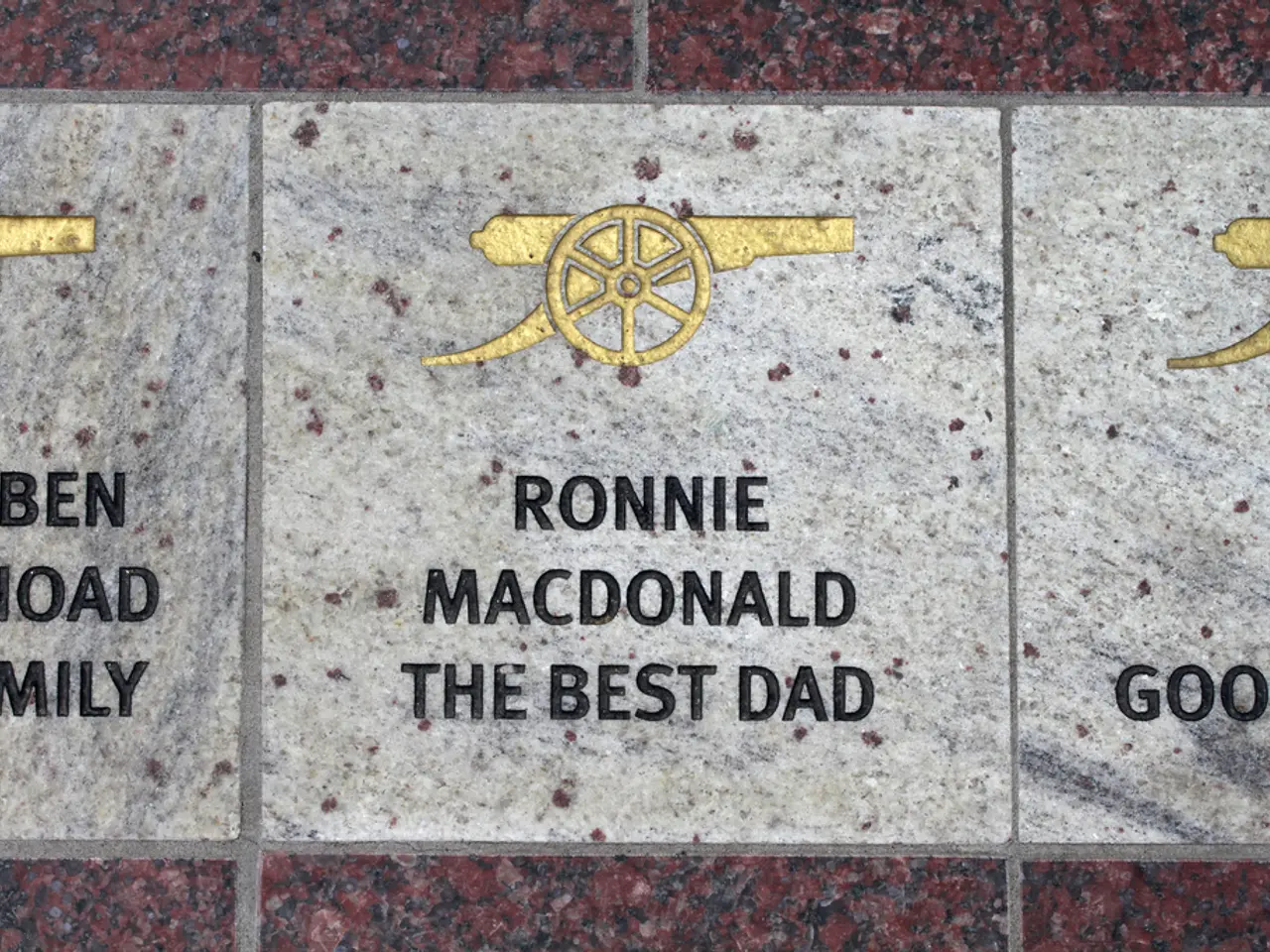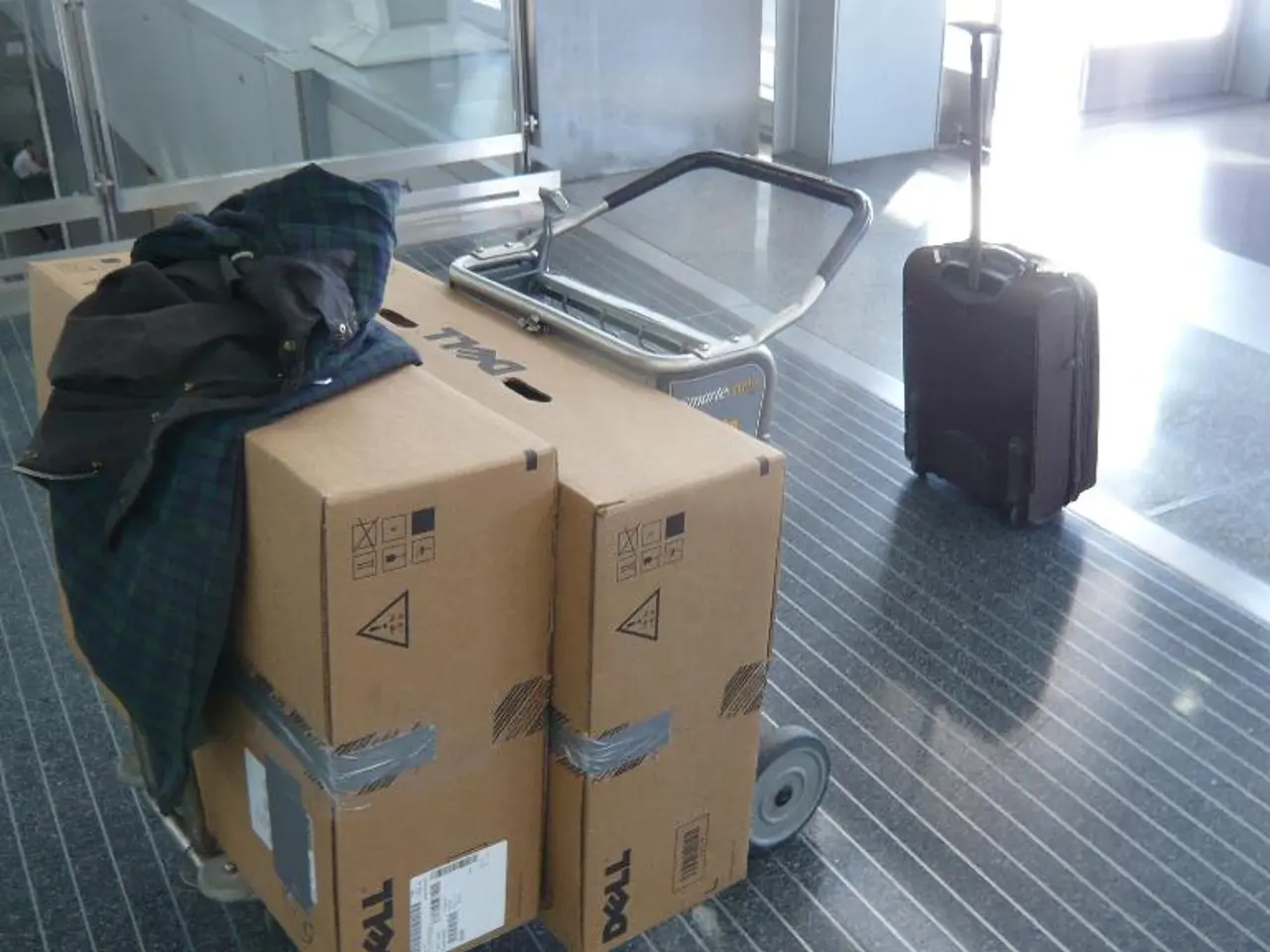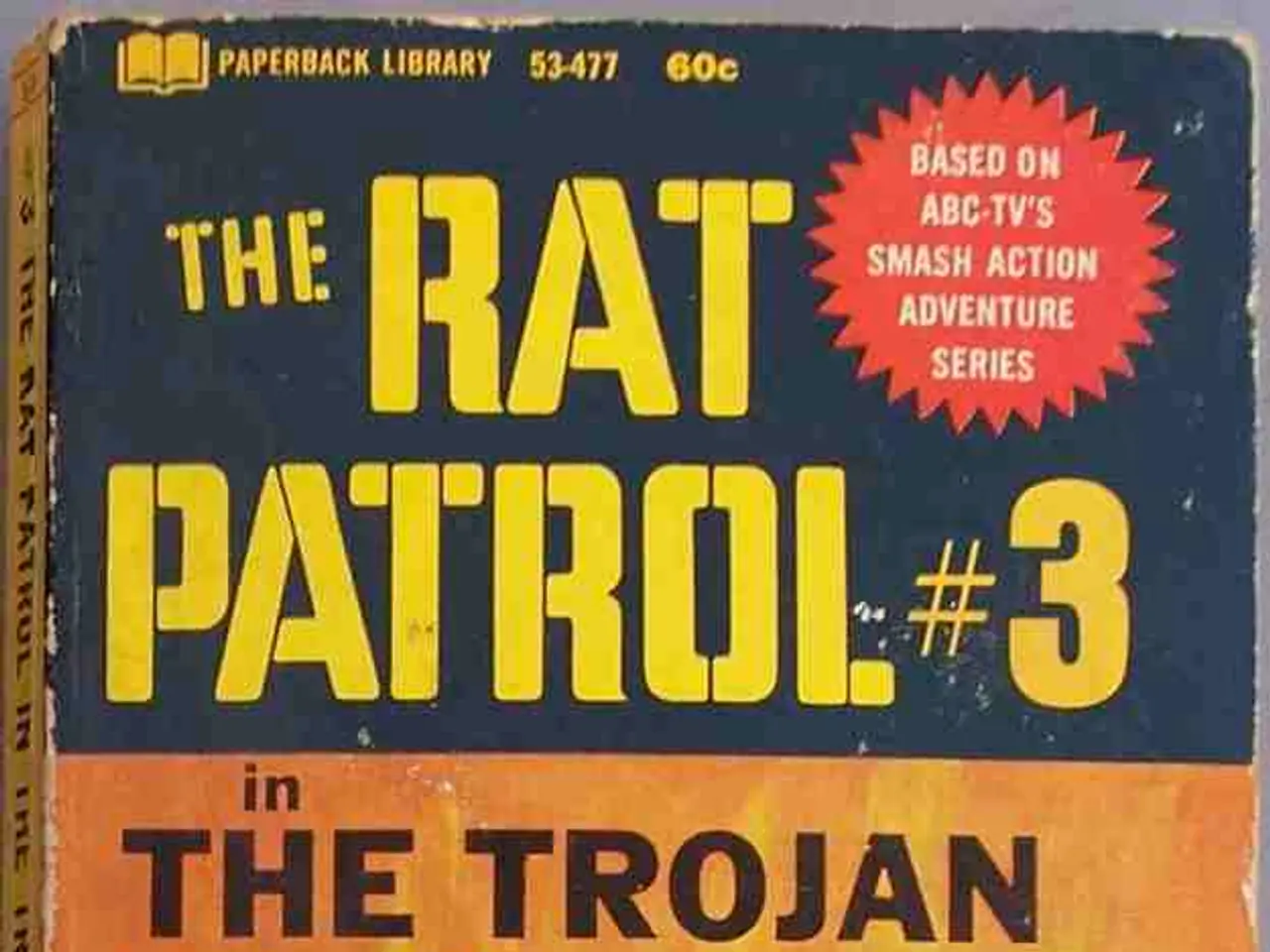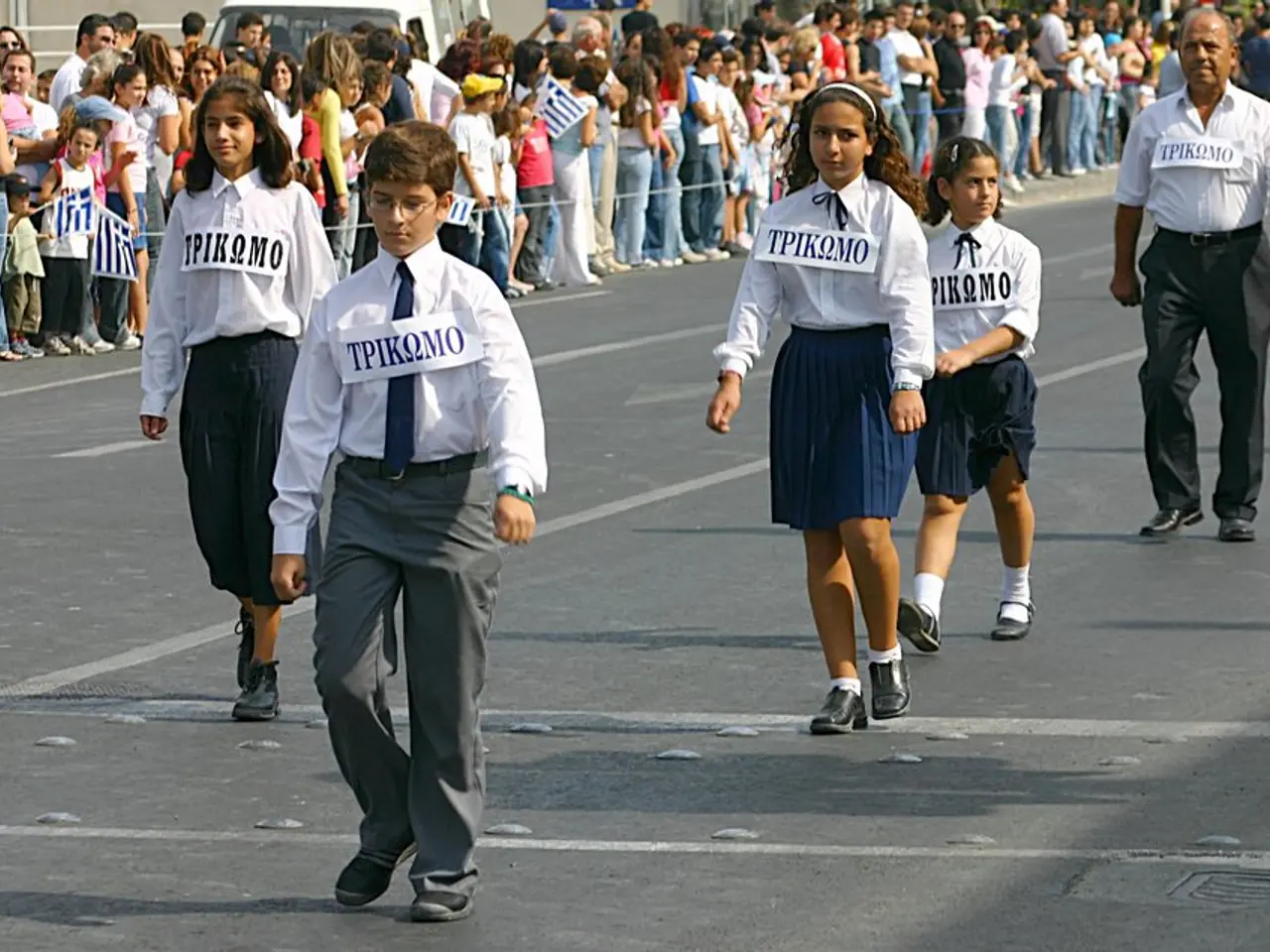Results of the Holtener Stummsten Cleanup Effort
In the small town of Holten, Germany, a powerful symbol of remembrance and resistance against right-wing ideology stands tall - the "Stumbling Stones" project, the largest Holocaust memorial in the world. Initiated by artist Gunter Demnig in the 1990s, this memorial consists of small brass plaques embedded in the pavement, each commemorating a victim of Nazi persecution.
Holten is one of the many towns across Europe where these memorials have been installed to keep the memory of the individuals alive in the midst of everyday life. The project aims to make passersby "stumble" both literally and metaphorically over these reminders of the past, fostering a personal connection to the victims and combating forgetting and denial.
During a recent memorial event in Holten, speeches were given about the Nazi victims Gerhard Schumacher, Wolf family, Rosenbaum family, and Julie and Hermann Eggener. Christiane Wilms, pastor in Holten, discussed the suffering of the Wolf family during the Nazi era, while Henning Wilms, another pastor in Holten, brought attention to the Rosenbaum family's plight. Lena Kamps-Engel, chairwoman of the SPD from Alsfeld-Holten, and Cornelia Schiemanowski from "GRANDFATHERS AGAINST THE RIGHT" spoke about Julie and Hermann Eggener.
The significance of the "Stumbling Stones" project lies in its decentralized, grassroots approach to Holocaust remembrance. By personalizing and localizing the remembrance of the Holocaust victims, the project has helped foster awareness and connection across many towns and cities. In Holten, the memorials serve as a daily reminder of the atrocities that occurred, inspiring a sense of responsibility to uphold democracy and stand against the resurgence of right-wing ideology.
The project is not just a memorial, but also an educational tool. By learning about the lives and fates of individual victims, people can gain a deeper understanding of the horrors of the Holocaust and the importance of preserving democracy. As Helmut Brodrick, SPD city councilor for Holten, stated during the memorial event, "Our awareness of the value of freedom and democracy is based on our culture of remembrance."
Currently, there are approximately 90,000 "stumbling stones" across Europe, including 339 in the city of Oberhausen. The project continues to grow, with new plaques being installed regularly to remember more victims of the Holocaust. As we reflect on the current political developments in Germany and around the world, the "Stumbling Stones" project serves as a powerful reminder of the importance of standing up for our democratic order and never forgetting the lessons of the past.
The Stumbling Stones project, a decentralized and grassroots approach to Holocaust remembrance, utilizes general news and politics to educate about the individual victims, such as Gerhard Schumacher, Wolf family, Rosenbaum family, and Julie and Hermann Eggener in towns like Holten. This memorial, serving as a daily reminder of the atrocities, encourages the upholding of democracy and the stand against the resurgence of right-wing ideology, as shown in policy-and-legislation discussions.





